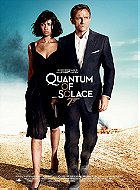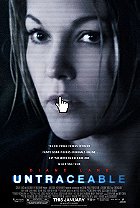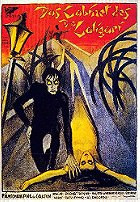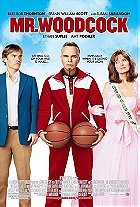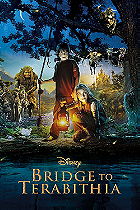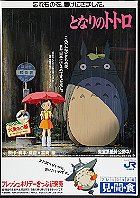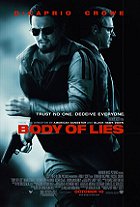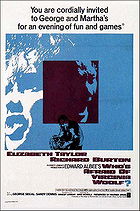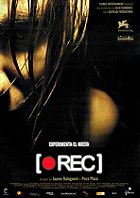Major movie studios frequently pour tens of millions of dollars into high-tech horror extravaganzas, and they die at the box office within a matter of days. A few independent filmmakers venture out into the woods with hand-held cameras and an extraordinarily low-budget to back them up, and they score a much-hyped, highly-acclaimed box office bonanza!
The Blair Witch Project originated as a deceptively simple, ultra low-budget independent feature. Slowly, this small-time film developed into one of the most chilling, creepy films of its time. It took unsuspecting audiences entirely by surprise, and scared other movie studios whose gigantically budgeted films were running in fear from the tiny movie.
The Blair Witch Project is distinguished for various reasons. First of all, it is incredibly eerie, atmospheric, and unpredictably exasperating. Secondly, compared to most other horror films of the time, it is innovative and clever. Blair Witch did spawn its own sub-genre as a result. These guys wrote the rulebook for the "found footage" genre, and filmmakers have adhered to it ever since (Cloverfield, anyone?). Thirdly, it was made on a shoestring budget and returned a mint in box office profits. Fourth, it used the internet to fabulous promotional effect. Fifth, after all these years it has become more of a phenomenon than a conventional viewing experience. And lastly, it instils a sense of "less is more", leaving a lot more to the imagination than most other fright flicks.
By now all and sundry should be aware of the movie's gimmick. "In October of 1994," reads the prologue, "three student filmmakers disappeared in the woods near Burkittsville, Maryland, while shooting a documentary... A year later their footage was found." The "documentary" being filmed by the students was a college project about a local legendary figure known as the Blair Witch. Allegedly, the three youthful filmmakers died under mysterious circumstances in the woods while trying to complete the documentary, and their bodies never turned up.
Heather Donahue, Michael Williams and Joshua Leonard (retaining their real names for heightened realism) take a video camera and a 16mm film camera as they hike through the Black Hills Forest in search of evidence in relation to the existence of the Blair Witch who has supposedly haunted the forest since the 18th century and is credited for scores of heinous murders. They interview local townspeople before embarking on a hike into the forest. They are soon inexplicably lost and morale rapidly deteriorates. The filmmakers are tired, hungry, angry, and hopelessly lost. As tension mounts they realise they're also being haunted and probably stalked by some unknown presence...and there is no way out.
Heather captures virtually everything with her video camera with the intention of assembling a behind-the-scenes look at how her documentary was made. Heather's camera is on practically all the time - to the point that her companions continually tell her to turn off the camera. As the unseen evil hunts them, they realise they're not filming a legend but a descent into unimaginable terror.
Naturally, every word of Blair Witch is fiction... The movie is a complete forgery, but it was made and promoted so cunningly that countless people worldwide thought it was real. Prior to the film's theatrical release, a site for The Blair Witch Project was launched. As of the film's tenth anniversary, this website is still online. It offers insight into the (completely false) myth of the Blair Witch. Although the film is 100% fiction, naïve movie-goers witnessed screenings at their local cinema believing everything to be true.
Blair Witch is a film where ignorance is bliss - or, to be more accurate in this case, utter terror. Ostensibly the final testament of a film crew who disappeared off the face of the planet, the movie bears a resemblance to an authentic documentary which makes This Is Spinal Tap seem like a David Lean epic.
Ahead of its theatrical release, the film fooled many American college students who were shown the film - the ruse in this case was abetted by a surplus of apparently legitimate "Missing" posters seeking information concerning the whereabouts of the apparently lost youngsters. Such screenings helped spawn the positive word-of-mouth that directors Daniel Myrick and Eduardo Sanchez knew would be unquestionably vital if their little film was to be a success. Its air of mystery was definitely the film's strongest selling point - featuring little in the way of stars, special effects or even competent cinematography. The directors could hardly claim much of a notable cinematic track record either. But the pair shared an adoration of 70s horror flicks and decided to pool their meagre income for a feature that would endeavour to evoke the visceral terror they felt upon initially viewing William Friedkin's The Exorcist.
Co-director Sanchez recalls the experience: "We were after complete realism. We knew that if we did it with a crew it wouldn't work. From the beginning we wanted to do Blair Witch as an improvised film. We were basically going to leave the actors for certain amounts of time on their own, tell them what was happening and let them shoot it for a couple of hours at a time. Then we'd come back, review the footage and go on to the next scene." But it was the input of Gregg Hale - a onetime Special Forces sergeant - that ensured the film a place on the horror hall of fame. He reportedly said: "When I was in Special Forces training they put us through this POW camp scenario. And after about two or three days of being in that camp surrounded by these guys hitting you, and yelling at you in Russian, and not letting you sleep, and hosing you down with water, you start to believe that it's really happening. You know, we could do this to the actors!" Myrick and Sanchez were delighted at the idea.
So it was that a trio of unknown actors found themselves pretending to compose a film concerning the fictitious ancient woods-dwelling witch while being truly petrified as the film crew deposited ominous-looking stick men in their path or played tapes of children crying in the middle of the night. "We were the Blair Witch," Myrick reminiscences. "We had to get up at three in the morning and run around their tent. We had to hike through the woods to drop off directing notes. Then we'd review Heather's video tapes at the end of the day to see how it was reading on camera."
The element that makes The Blair Witch Project unusually gripping is the atypical presentation. Every scene is a point-of-view shot, shown exactly as one might expect from someone carrying around a video camera. The transitions are unexpected and often jarring - what we'd expect if the camera was turned off at one point, then turned back on later. The most chilling sequences transpire at night when the darkness foils the video. There are instances when the screen is entirely black and all we hear is the audio - the panicked voices of the protagonists in the foreground with strange, macabre noises in the background. At other times the action depicted is chaotic, often because the person doing the filming would be running or unsure what to capture. These segments rely on the imagination of a viewer to fill in the gaps. What our minds conjure up is always more horrifying than anything the filmmakers can put on screen. Also, this seemingly haphazard and unprofessional technique gives the audience a "you are there" feeling that draws them into the experience. Everything that transpires is hence more shocking and immediate than it would seem in a conventional format.
The trio of actors are uniformly excellent. For amplified realism, the filmmakers had to genuinely scare the actors...and they did. There are a few traces of artifice, though, usually when characters are having a conversation on-camera. But due to the improvisational style of acting, it's easy to get engaged in the problems of these characters. When Heather offers a tearful apology towards the end, it's utterly heartbreaking.
There are things to nitpick, though. For starters it's preposterous that the camera is on for so long. Once one is in danger, why bother filming anymore? I doubt anyone would keep filming under these circumstances. However the key fault is the occasional lack of realism. For example, the trio all have mentioned loved ones who would be aware of their expedition. Any parent whose offspring doesn't show up merely hours after they are due home would call the police and launch a search. The filmmakers endue for days...without a search party in sight. Surely the police would have also been informed of the proposed camping trip as well, and would've launched a search when they didn't return home. There's also the flaw of character stupidity. One character reportedly gets rid the map because it's "useless" - not good enough! And they're surrounded by tall trees, why not climb up to the top and see where you are? Why not find higher ground in order to spot a way out? The film also seems undercut at a bit under 80 minutes. In the faux interviews on the official site they mention about 20 hours of recovered footage, so it's obvious we're missing out on a lot of stuff. But the most lethal setback is simple: once you realise it isn't real the film is not scary at all. It isn't competent enough to truly convince a viewer it is real. Overuse of profanity and the aforementioned character stupidity occasionally kill the illusion. However it is pretty chilling with the grating screams of Heather or the eerie sounds coming from pitch black.
It's fairly riveting, though it depends on how you view it. If one watches it in a dark room at night with no interruptions and you're paying 100% attention it may work better. If it's light and you're not paying much attention, you'll hate it.
The Blair Witch Project is notoriously inventive - both in its creation and marketing - but it's a victim of its own hype. Once you discover it isn't real you'll no longer find it scary. Yet it's an innovative, non-traditional horror movie that ushered in a new genre (titles like Diary of the Dead, Cloverfield and [Rec] drew inspiration from this film). The ending is very creepy and irritatingly ambiguous, especially if you want to believe the film's universe and faux mythology available on the official website. The Blair Witch Project has lost much of its original impact. Be that as it may, the combination of cinema verité and fake documentary filming occasionally generates some hair-raising horror scenes.
6.2/10
 Login
Login
 Home
Home 183 Lists
183 Lists 1670 Reviews
1670 Reviews Collections
Collections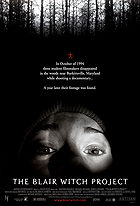
 0 comments,
0 comments, 